 W
WGeneral Sir Charles Asgill, 2nd Baronet, was a career soldier in the British Army. Asgill enjoyed a long military career, eventually rising to the rank of general. He is best remembered as the principal of the so-called "Asgill Affair" of 1782, in which his retaliatory execution while a prisoner of war was commuted by the American forces who held him, due to the direct intervention of the government of France.
 W
WFrederick Cecil Banes-Walker was an English first-class cricketer who played five matches for Somerset County Cricket Club. He also played rugby for Clifton Rugby Football Club, and hockey for Gloucestershire. He was killed in action during the First World War.
 W
WHenry Somerset, 1st Duke of Beaufort, KG, PC was a Welsh politician who sat in the House of Commons at various times between 1654 and 1667, when he succeeded his father as 3rd Marquess of Worcester. He was styled Lord Herbert from 1644 until 3 April 1667. The Dukedom of Beaufort was bestowed upon him by King Charles II in 1682.
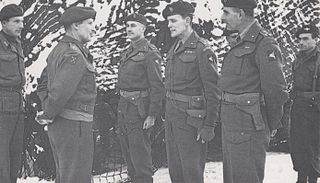 W
WMajor General Eric Louis Bols CB DSO & Bar was a senior British Army officer, who, during World War II, was most notable for serving as the General Officer Commanding (GOC) 6th Airborne Division during Operation Varsity in March 1945.
 W
WLieutenant General Sir Louis Jean Bols was a British Army General, he served as Edmund Allenby's Third Army Chief of Staff on the Western front and Sinai and Palestine campaigns of World War I.
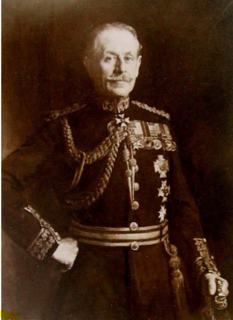 W
WSir Neville Francis Fitzgerald Chamberlain, was an officer in the British Indian Army. He was later Inspector-General of the Royal Irish Constabulary, and resigned in the aftermath of the 1916 Easter Rising in Ireland. He is credited with having invented the game of snooker while serving in Jubbulpore (Jabalpur), India, in 1875.
 W
WLieutenant General Sir Rufane Shaw Donkin, was a British army officer of the Napoleonic era and later Member of Parliament.
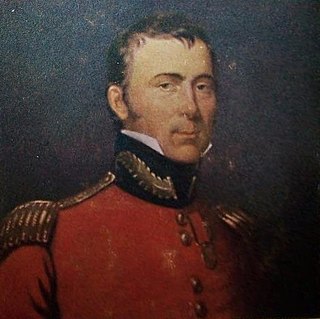 W
WLieutenant-Colonel Colquhoun Grant (1780–1829) was a British Army soldier and intelligence officer during the Napoleonic Wars.
 W
WJames Grant, Laird of Ballindalloch (1720–1806) was a British Army officer who served as a major general during the American War of Independence. He served as Governor of East Florida from 1763 to 1771, and between 1773 and 1802 he had seats in the House of Commons.
 W
WWilliam Noel Hodgson MC was an English poet of the First World War. During the war, he published stories and poems under the pen name Edward Melbourne.
 W
WJames Bysse Joll FBA was a British historian and university lecturer whose works included The Origins of the First World War and Europe Since 1870. He also wrote on the history of anarchism and socialism.
 W
WSir John Henry Kennaway, 3rd Baronet, was an English Conservative Party politician.
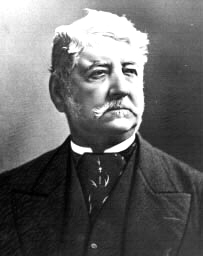 W
WSir Arthur Edward Kennedy was a British colonial administrator who served as governor of a number of British colonies, namely Sierra Leone, Western Australia, Vancouver Island, Hong Kong and Queensland.
 W
WBrigadier-General Charles Lawrence was a British military officer who, as lieutenant governor and subsequently governor of Nova Scotia, is perhaps best known for overseeing the Expulsion of the Acadians and settling the New England Planters in Nova Scotia. He was born in Plymouth, England, and died in Halifax, Nova Scotia. According to historian Elizabeth Griffiths, Lawrence was seen as a "competent", "efficient" officer with a "service record that had earned him fairly rapid promotion, a person of considerable administrative talent who was trusted by both Cornwallis and Hopson." He is buried in the crypt of St. Paul's Church (Halifax).
 W
WLieutenant General Sir John Gaspard Le Marchant (1803–1874) was a British Army officer and governor of Newfoundland from 1847 to 1852. He later became the Lieutenant Governor of Nova Scotia (1852–1858).
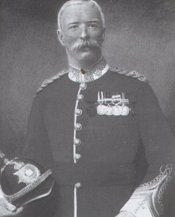 W
WMajor James Edward Ignatius Masterson VC was an Irish recipient of the Victoria Cross, the highest and most prestigious award for gallantry in the face of the enemy that can be awarded to British and Commonwealth forces.
 W
WRichard Cameron North Palairet was an English cricketer who played first-class cricket for Oxford University and Somerset. After his playing days, he became a prominent cricket administrator, acting as secretary at Surrey County Cricket Club and being joint manager, with Pelham Warner, of the English cricket team in Australia in 1932-33 which became embroiled in the Bodyline controversy.
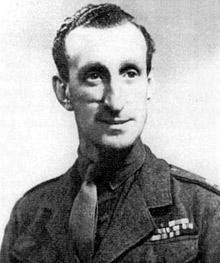 W
WColonel Richard Geoffrey Pine-Coffin was an officer of the British Army who saw service during World War II. He commanded the 3rd Parachute Battalion in North Africa and the 7th Parachute Battalion in Normandy, Belgium, and Germany. His troops, amused by the unusual applicability of his family name, referred to him as "Wooden Box".
 W
WWilliam Herbert, 2nd Marquess of Powis was a Welsh aristocrat and Jacobite supporter.
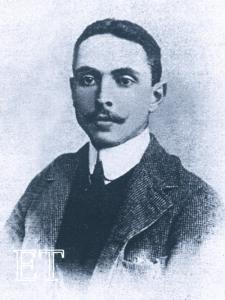 W
WNorman Evelyn Leslie, 19th Earl of Rothes was a Scottish soldier and representative peer.
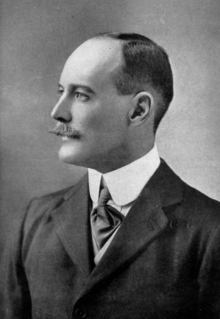 W
WCaptain William Henry Irvine Shakespear, was a British civil servant and explorer who mapped uncharted areas of Northern Arabia and made the first official British contact with Ibn Sa'ud, future king of Saudi Arabia. He was the military adviser to Ibn Sa'ud from 1910 to 1915, when he was shot and killed in the Battle of Jarrab by Ibn Shraim.
 W
WMajor General Francis Smith (1723–1791) was a British army officer. Although Smith had a lengthy and varied career, he is best known as the British commander during most of the Battle of Lexington and Concord, Massachusetts on 19 April 1775. The fighting ignited the American War of Independence that would see thirteen of Britain's American Colonies become a separate nation.
 W
WEvelyn Francis Edward Seymour, 17th Duke of Somerset was a British Army officer, landowner, peer, and for eight years Lord Lieutenant of Wiltshire. He was also a baronet. Between 1 May 1882 and 5 May 1931, he was styled as Lord Seymour.
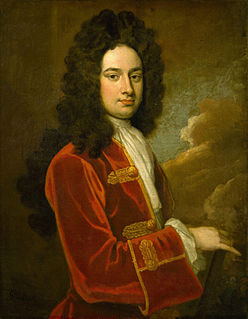 W
WJames Stanhope, 1st Earl Stanhope was a British soldier, diplomat and statesman who effectively served as Chief Minister between 1717 and 1721.
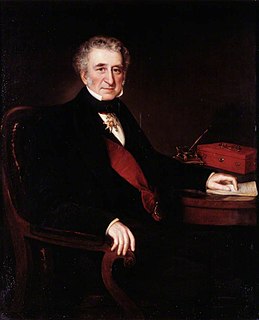 W
WJohn Fane, 11th Earl of Westmorland, styled Lord Burghersh until 1841, was a British soldier, politician, diplomat and musician.
 W
WAlan Donald Whicker was a British journalist and television presenter and broadcaster. His career spanned almost 60 years, during which time he presented the documentary television programme Whicker's World for over 30 years. He was made a Commander of the Order of the British Empire (CBE) in 2005 for services to broadcasting.
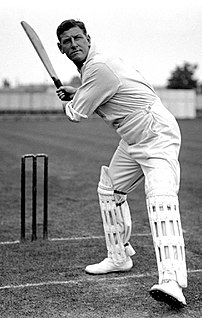 W
WSamuel Moses James Woods was an Australian sportsman who represented both Australia and England at Test cricket, and appeared thirteen times for England at rugby union, including five times as captain. He also played at county level in England at both soccer and hockey. At cricket—his primary sport—he played over four hundred first-class matches in a twenty-four-year career. The majority of these matches were for his county side, Somerset, whom he captained from 1894 to 1906. A. A. Thomson described him thus: "Sammy ... radiated such elemental force in hard hitting, fast bowling and electrical fielding that he might have been the forerunner of Sir Learie Constantine."
 W
WMajor-General Richard Alchorne Worge was an English General in the British Army, Governor of Senegal and a Member of Parliament for Stockbridge.